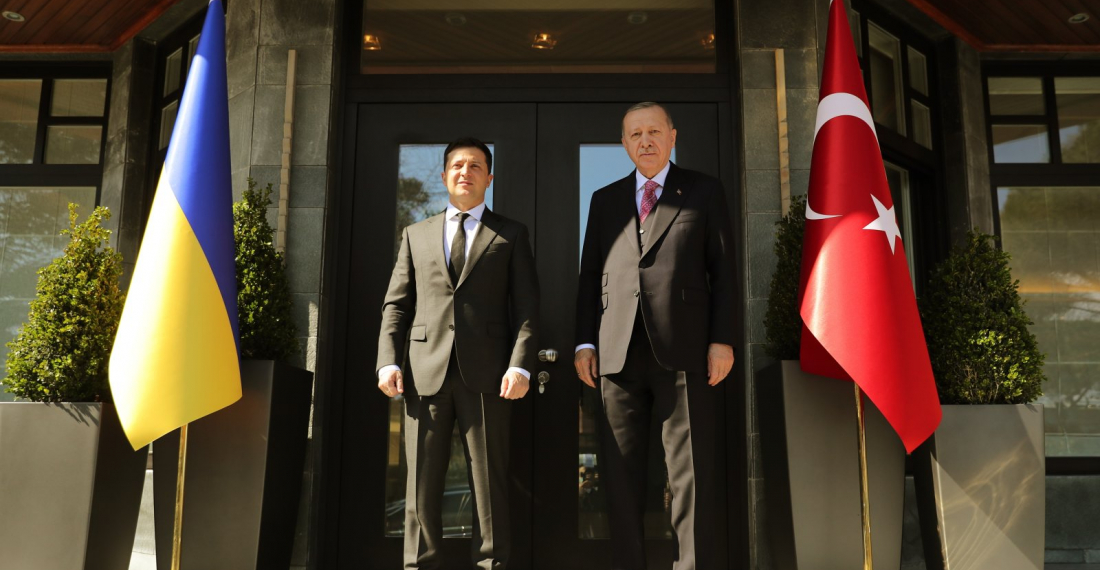Turkey has reaffirmed its support for Ukraine amid increased tension on the Russian-Ukrainian border.
Ukrainian president Vladimir Zelensky visited Istanbul over the weekend for talks with the Turkish president Recip Tayip Erdogan.
After talks between the two presidents Erdogan called for a diplomatic and peaceful solution to the ongoing escalation between Ukraine and Russia with a strong emphasis on the need to turn the Black Sea region into a basin of peace and co-operation.
“We believe that the current crisis should be resolved in a peaceful and diplomatic way and on the basis of Ukraine’s territorial integrity and international law,” Erdogan told a press conference with Zelensky after the meetings late April 10.
Zelensky’s visit to Istanbul came as the tension between Ukraine and Russia escalated over incidents in the former's Donbass region where pro-Russian separatist groups clashed with the Ukrainian troops. Russia has intensified its military presence along the border with Ukraine as Moscow blames Kiev for provocations. This recent escalation is triggering new alarm bells in the region after Russia’s annexation of Ukraine’s Crimea.
“Our primary goal is that the Black Sea continues to be a sea of peace, serenity and co-operation. We do not want tension to rise under any circumstances in our shared geography. In this sense, I, together with my treasured friend, have exchanged each other’s views on the current situation in the east of Ukraine,” Erdogan said. The Turkish president also expressed Turkey's readiness to provide any support necessary to this end.
“We hope for the worrying escalation observed on the field recently to end as soon as possible, the ceasefire to continue and for the conflict to be resolved via dialogue on the basis of the Minsk agreements,” he added. Turkey strongly defended Ukraine’s territorial integrity and sovereignty,” he said, stressing, “We reaffirmed our principled stance of not recognizing the [Russian] annexation of Crimea.”
Zelensky, for his part, said the positions of Kyiv and Ankara coincided on threats in the Black Sea and the response to those threats, and added that he briefed Erdogan “in detail” on developments in Donbass. “I am pleased to hear from President Erdogan that Turkey’s current support will continue and that its ongoing stance will not change,” he said.
Erdogan and Zelensky also led the ninth meeting of the Turkey-Ukraine High Level Strategic Council. Erdogan announced that Turkey and Ukraine launched a platform with their foreign and defence ministers to discuss defence industry cooperation, but added this was “not in any way a move against third countries.” Zelensky also acknowledged the increased partnership in the field, stressing that the defence industry was the driving force behind the Turkish-Ukrainian strategic partnership.
In the meantime, Ukrainian Defence Minister Andrey Taran held a separate meeting with Defence Minister Hulusi Akar to discuss bilateral ties, and regional defence and security issues, the Turkish National Defence Ministry said in a statement.






